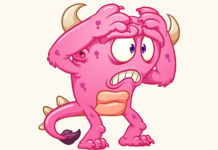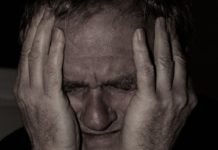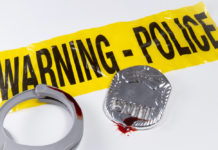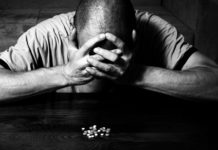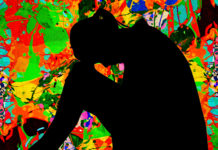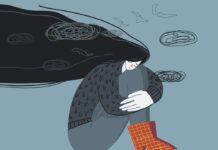Dostoevsky: A Psychologist We Can All Learn From
Psychology has greatly broadened its scope since Nietzsche’s day and yet his implied criticism is one the discipline is still wrestling with.
Response to Criticism of Our Serotonin Paper
Criticisms of the paper were contradictory. Some psychiatrists said that no one ever really believed the serotonin theory. Yet the public does believe it, and are very surprised to learn that it is a myth.
RFK Jr. May Be Wrong on Many Medical Issues, But He’s Right About Antidepressants
Documented cases show a link between SSRIs and school violence, but pharma has suppressed the data that could prove this link.
Helping Children to Overcome OCD: 6 Creative Strategies for Parents
Here, Dr. Ben Furman offers a creative approach to helping children who struggle with OCD. Explaining why behaviors like reasoning, reassuring, and superstitious rituals don’t work, he suggests engaging alternatives that teach kids how to manage their “worry monster” and make sense of their distressing experience.
Three Suicides: Honoring Lives Lost to Benzodiazepines
I am still trying to reconcile what these chemicals are capable of, how the urge can morph into an action, how we maybe just don’t understand suicide all that well. For me, the suffering was so intense it was too painful to stay alive. I understand how my friends felt in their last moments.
How I Overcame an Episode of SSRI-Induced Suicidal Depression
My journey into the dark night of the soul was launched by an adverse reaction to the drug Effexor. Taking this medication triggered a maddening condition called Akathisia--a syndrome characterized by inner restlessness and agitation. My body was possessed by a chaotic, demonic force which led to my shaking, twitching and pacing back and forth across the room. The force of my symptoms was so great that I considered the possibility that I might be possessed by some malevolent demon. What made the situation even worse was that my experience was discounted by the psychiatric community.
“The Best Minds”: How the Dazzling New Book Falls Short
"The Best Minds" could be seen as a book that is critical of conventional psychiatry, but it falls short on pointing out its true faults.
Psychiatry’s Medical Model: How It Traumatizes, Retraumatizes & Perverts Healing
The beginning of healing from trauma requires stripping power away from disconnecting violators like psychiatry's medical model.
There’s No Duct Tape for Benzo Withdrawal
It’s stunning what a quarter milligram of a benzodiazepine can do to the body. I’ve been detoxing off a high dose of benzodiazepines since September of 2011. The first few months were a failure. But this past May, I found my expert and thought I had the formula. Things were going well for detoxing off a substance many deem more addictive that heroin. That is, I realized, until they weren’t.
Back to Basics: What’s Wrong with NAMI
It seems one mostly needs to already know what they’re looking for in order to find the most established criticisms of this particular organization. And even with knowledge and intent, it can require some fairly persistent Googling efforts to unearth all there is to be found.
Spiritual Side Effects of Psychiatric Medication: From Helpful to Harmful
The larger narratives put forth by psychiatry and neuroscience often eclipse the equally important stories of lived experience. The easiest way to understand how people are engaging spiritually with their prescriptions is to hear it in their own words.
Trauma Outside the Box: How the ‘Trauma-Informed’ Trend Falls Short
Becoming "trauma-informed" is often just a way to advance one's career and feel good about oneself while pretty much doing nothing different. Here's a glimpse into the ways in which mainstream services and trauma specialists are perpetuating harm while patting themselves on the back for being progressive and aware.
The Gauntlet of Protracted Benzodiazepine Withdrawal
My doctor insisted that my symptoms could not be associated with withdrawal – they had to be symptoms of an underlying condition. I have since learned from legitimate sources that protracted withdrawal syndrome from benzodiazepines can intensify long before it abates, with some symptoms lasting for years.
End Police “Wellness Checks.” Now.
If you are a mental health worker or advocate, there's a way to help dismantle police brutality and systemic racism in the U.S.
Electroshocking Children: Why It Should Be Stopped
In a recent commentary, University of Toronto historian Edward Shorter laments the efforts of people like myself in states like Texas who have successfully put limits on shocking children in order to induce grand mal convulsions. His argument is that we who have fought against this are denying children a benevolent medical treatment. In order to understand why Shorter’s plea to use electroshock on children is so egregious, we need to know what it does to children’s brains, which means a look at the science.
Rising Rates of Suicide: When Do We Acknowledge That Something Isn’t Working?!
Scapegoating a purported unseen "illness" may provide temporary comfort from acknowledging the horrors and injustice of the world, but it is a delusion — and one with fatal consequences for many. When 45,000 people a year would rather die than live in this world any longer, it might behoove us all to consider what is happening in the world to cause this.
More on Benzos and Cognitive Damage
There is mounting evidence that benzodiazepines are causing Alzheimer's Disease. I cannot imagine any genuine medical specialty ignoring or downplaying information of this sort. But psychiatry, with the perennial defensiveness of those with something to hide, promotes the idea that they are safe when used for short periods, knowing full well that a huge percentage of users become "hooked" after a week or two, and stay on the drugs indefinitely.
Not Just a Dream: Finding the Mental Health Community I’d Been Longing For
I dreamed of a place where healers weren’t afraid of intense states like madness. They embraced it; maybe they’d been through it themselves.
Lingering Side Effects of Quitting Antidepressants
Nobody told me what it would be like when I first stopped taking antidepressants. The worst is definitely over, but I’m still experiencing some lingering side effects. When the hyper-arousal to sights and sounds kicks in and my head starts buzzing, I’ve learned some ways to cope.
How Reliable is the DSM-5?
More than a year on from the release of DSM-5, a Medscape survey found that just under half of clinicians had switched to using the new manual. Most non-users cited practical reasons, typically explaining that the health care system where they work has not yet changed over to the DSM-5. Many, however, said that they had concerns about the reliability of the DSM, which at least partially accounted for their non-use. Throughout the controversies that surrounded the development and launch of the DSM-5 reliability has been a contested issue: the APA has insisted that the DSM-5 is very reliable, others have expressed doubts. Here I reconsider the issues: What is reliability? Does it matter? What did the DSM-5 field trials show?
The Three Most Important Facts About Psychiatric Drugs
Psychologist and educator Michael Corrigan was a guest on my radio show and brought up some questions about how to communicate with people about psychiatric drugs. Specifically, he asked, “What are the three most important things for anyone to know about psychiatric drugs?” Here is my answer.
Splitting Complex Post-Traumatic Stress Disorder and Borderline Personality Disorder
Recognition of C-PTSD might be a double-edged sword, further marginalizing the very individuals it aimed to assist.
From Public Service to Private Practice: The Collapse of the Social Work Profession
Can we resist turning to private practices masked in social justice rhetoric as a substitute for genuine movement building and advocacy?
Transcranial Magnetic Stimulation
TMS is a psychiatric treatment that uses a rapidly alternating magnetic field to induce electric currents in the brain. These currents stimulate neurons, causing them to "fire." When used repetitively, TMS is said to alter the excitability of the brain area that has been stimulated. In the psychiatric field, TMS is being used increasingly as a treatment for depression, particularly with so-called treatment-resistant clients. I Googled the string "TMS + depression" and got 1.35 million hits. So the idea is attracting attention.
Stopping the Madness: Coming Off Psychiatric Medications
Millions of patients find themselves caught in the web of psychiatric sorcery - a spell cast, hexed, potentially for life. They are told that they have chemical imbalances. They are told that the most important thing they can do for themselves is to "take their medication," and that they will have to do so "for life." Most egregiously, patients are sold the belief that medication is treating their disease rather than inducing a drug effect no different than alcohol or cocaine. That antidepressants and antipsychotics, for example, have effects like sedation or blunting of affect, is not a question. That these effects are reversible after long-term exposure is.




